- Home
- Vanessa Curtis
The Earth Is Singing
The Earth Is Singing Read online
About This Book
My name is Hanna Michelson.
I am fifteen.
I am Latvian.
I live with my mother and grandmother. My father is missing – taken by the Russians.
I have a boyfriend. When he holds my hand, everything feels perfect.
I’m training to be a dancer.
But none of that matters now.
Because the Nazis have arrived, and I am a Jew. And as far as they are concerned, that is all that matters.
This is my story.
Contents
About This Book
Dedication
Author’s Note
Chapter One
Chapter Two
Chapter Three
Chapter Four
Chapter Five
Chapter Six
Chapter Seven
Chapter Eight
Chapter Nine
Chapter Ten
Chapter Eleven
Chapter Twelve
Chapter Thirteen
Chapter Fourteen
Chapter Fifteen
Chapter Sixteen
Chapter Seventeen
Chapter Eighteen
Chapter Nineteen
Chapter Twenty
Chapter Twenty-one
Chapter Twenty-two
Afterword
About the Author
Discussion Questions
Usborne Quicklinks
Copyright
Dedicated to Ita Edie Michalowitz, 1882 – 1957
Author’s Note
My great-grandmother was born in Talsi, a tiny village outside Rīga, the capital of Latvia, at a time when Latvia was part of the Russian Empire. After the bloody upheaval of the 1905 Russian Revolution, she left Latvia and arrived by ship at the East London Docks to start a safer life. But I got to wondering what had happened to the relatives she left behind in Rīga and my research revealed the unbearable truth. They were Jews, so their fate during World War II was to be the worst imaginable.
Latvia left the Russian Empire and was an independent country from 1920 to 1940. But in 1940, towards the beginning of World War II, the Soviet army again occupied Latvia, under the pretext of protecting it from the Germans. They installed a Communist government. Latvia became part of the Soviet Union and was once more governed from Moscow.
The new Communist regime in Latvia was harsh. During the period of the Soviet dictator, Stalin, Latvians who were judged to be enemies of the State were tortured and interrogated on the sixth floor of the KGB building in Rīga and executed in the basement or the yard. Thousands more were sent to hard labour camps in Siberia. In June 1941, 15,500 Latvian residents, mostly from Rīga, including 5,000 Jews and some 2,400 children under ten, were arrested and deported to these labour camps by cattle truck.
Under Communist rule, factories, banks and private businesses were nationalized. Latvia’s armed forces were destroyed. Organizations such as the Girl Guides and Boy Scouts were abolished, as well as all independent social organizations. All Latvian schoolchildren were forced to learn Russian as their first language in school and take part in Communist demonstrations. Churches, synagogues and other places of worship were shut down or repressed. Writers, musicians and artists were only allowed to produce works in accordance with Communist ideology. Any books which did not follow this ideology were banned from schools, libraries and bookshops and their creators were shot or sent to labour camps.
But worse was to come. The year of Soviet occupation in Latvia came to an abrupt end in July 1941 when Hitler’s German army invaded. Many Latvians at first viewed the German army as saviours who would rescue them from the daily restrictions of that harsh Soviet Communist regime. There was even hope that Latvia’s independence would be restored. But, for Rīga’s 30,000 Jewish residents, any hopes were short-lived. Along with the German army came Adolf Hitler’s vehemently anti-Semitic Nazi Party. The Nazis had only one plan for the Jews of Rīga – to wipe them out.
As the Soviet army retreated and the German army invaded, there was mass bombing and shelling in Rīga. The spire of St Peter’s Church in the old town, a national monument since 1209, was caught by artillery fire and burned to the ground. As St Peter’s burned, the Nazis began to put their dreadful plan into effect.
This is the story of what happened next.
Chapter One
29th June 1941, Rīga, Latvia
It starts with the night that St Peter’s is bombed.
Mama stands behind me with her arms wrapped tight around my shoulders.
We watch from our apartment at the end of Skārņu iela as the church spire crumples like a giant bird’s wing on fire and folds in slow motion to the ground.
It is hard to believe what is happening to the church. It has been there for hundreds of years.
Since Papa was taken, she has to hold me tight enough for him as well.
There is a deafening roar of collapsing rubble.
“It might be a last-ditch attempt by the Soviets,” says Mama. “Or it might be a warning from the Germans. I hear they are on the other side of the riverbank already. If they can destroy St Peter’s, they can destroy anything.”
“What do you mean?” I say. Mama has been saying a lot of things like this lately. Sometimes I understand them and sometimes it’s as if she has stopped speaking German and started in some other language.
Mama pulls the curtains and shuts out the orange flames and thick grey plumes of smoke rising from the bomb site. The city has been under fire for several weeks now. We are getting used to only venturing out if we really have to. Mama is annoyed that she can’t visit the Central Market to buy meat to make our weekly Sabbath meal, but it’s just too dangerous to walk that far. Instead she queues with other housewives at the small kosher butcher on the corner of our street and comes home disgruntled with overpriced, fatty meat.
“The Germans,” says Mama. “They are announcing their intent. It’s a sign to us.”
I sigh. My mother can be very melodramatic.
“Perhaps they will make things better,” I say. “I mean – how can things get much worse after what has happened to Papa?”
My mother turns away and goes into the tiny kitchen at the back of our apartment. I can hear her chopping liver with a small sharp knife. Liver is one of the few things still in ready supply and my mother serves it up every Sabbath and most weekday nights. In the two weeks since Papa left, her Jewish faith seems to have deepened. She says it’s for the sake of Omama, my grandmother, but I reckon it’s giving her something to be busy with so she doesn’t have to think about what’s happened to us.
The knife echoes on the chopping board like the snap of bones.
I go and look out of the window again. Nobody will try to extinguish the flames. The Russians have torched as many buildings as possible on their exit from our town. Rīga has been burning and smouldering for what seems like for ever. Vecrīga – the old town – is littered with the shells of buildings. They have large gaping windows and roofs which are open to the sky. The gutters are full of ash and debris and you can see bullet holes in the walls of some of the ornate art nouveau houses. Their bright yellow and blue facades look like they’ve been infected with chickenpox.
If I strain my head to the right I can still see the chimneys of Papa’s factory and the gothic roof of our old villa.
My stomach aches with pain. Mama has told me that the Russians need Papa for something overseas. Since they invaded us last year they have taken over control of banks and factories and started to view many Latvians as enemies of the state. That’s why they stole Papa’s factory, stopped him making a living for his family and then came to our villa in the middle of the night and made him throw two sh
irts and a pair of trousers and a few cooking pots into a bag. He left under cover of darkness. Somebody in town said that the men and women had been separated at the railway station and then shoved into cattle trucks. That’s why when I think about the 14th June, my heart aches. I try not to think about Papa in his elegant suit and white shirt being shoved into a truck. He is always so smart and takes pride in his appearance. I can’t bear to think of him suffering in any way at all. My papa is a good man.
The Soviets told us we no longer owned our villa, either.
We were ordered to move into this small apartment on Skārņu iela and even though it is in a solid old building and on a pretty street, it’s not our home.
Mama is fearful of the German soldiers heading towards Rīga but I don’t know why. They can hardly make things worse for us than the Soviets have.
“Mama,” I say, going into the kitchen. “I thought you loved everything German. You are always telling me that they are a cultured race. You speak their language and you love their buildings. Why are you so scared?”
My mother is spooning pickles from a jar into a small brown bowl. She puts it down and comes over to where I’m leaning on the door frame.
“Hanna,” she says, “it is not so simple. I don’t want to scare you, but haven’t you noticed the reaction we’re getting in the streets?”
“Yes, a little,” I say. I am cleaning the soft pink leather of my ballet shoes ready for dance school on Monday. I have noticed some strange glances from some of the girls at school and I’ve been worrying over whether to say something to them or just try and ignore it.
I used to go to a Jewish school and speak Hebrew, but when the Soviets invaded us just over a year ago they forced all the schoolchildren in Latvia, regardless of their religion, to go to regular school and learn Russian as a first language. I didn’t want that, so I auditioned for the School of the Opera and Ballet Theatre of LSSR instead and have spent the past year of Soviet occupation doing dance full-time. I liked the fact that I was allowed to do this; to follow my dreams of dancing like a swan.
But that was before they took Papa and changed our lives for ever.
I’m about to ask Mama more questions because I feel like she’s hiding something from me, but our plan to sit down to an early supper is disrupted by a knock on the door.
I go to open it and my face breaks into a grin.
“You found us!”
I hold open the door and invite him in.
Uldis Lapa is my best friend.
And maybe a little more.
I think I have loved Uldis for as long as I can remember. And now I think he is starting to feel the same way. We have been friends since I was ten and have been going out to the cinema together since I was fourteen.
He also taught me to swim at the big Rīga baths in town. But I always wanted to be more than just his best friend. So when I turned fifteen I asked Mama if, instead of going swimming or to see a film, I could take a special picnic to the park and sit by the canal with Uldis. I wanted to tell him how I felt.
We sat by the big white Opera House where I have dreams of dancing onstage one day and I opened up the picnic hamper and displayed all the good things that Mama had made me: black bread, sour cream, cold sausages, smoked sprats and a bottle of lemonade to wash it all down.
Uldis ate with enthusiasm. He always does. And I didn’t eat much because I had a feeling he was going to turn to me and offer a proper kiss and I didn’t want my memory of that day to be of my embarrassment at stinking of fish.
When Uldis had gulped down the dregs of his lemonade he wiped his mouth on one of Mama’s best linen napkins and then he leaned in towards me. There was a slight breeze and it lifted his blond peak of hair so that his bright blue eyes seemed even brighter against the tan of his skin.
And then he kissed me.
Something changed from that moment onwards. We stopped larking about and teasing one another like we’d done since I was a child and Uldis reached out for my hand as we crossed the little bridge in the park and leaned over towards the water.
I looked down at his quivering reflection in the water and my own, shorter one next to it and I thought: I might marry you one day, Uldis Lapa.
Uldis still lives next door to our old villa, with his parents and sister. We were told not to tell our neighbours where we were being moved to, but I missed Uldis so much for the first few days, and deep down I just knew that he’d do everything he could to find me.
He is seventeen and has just left school to do an apprenticeship at one of the lawyers’ offices in the centre of town. He is a bright boy, or so Papa was always telling me. I think that Papa hoped I’d marry Uldis one day. But Mama always developed her tight-lipped look whenever Papa spoke that way. Sometimes I wonder if it’s because she would like me to make a Jewish marriage. But the thing is, that Mama didn’t make one either.
Today, though, she’s not looking tight-lipped at all. Just weary, and unsurprised to see Uldis standing on our front doorstep like an eager puppy, clutching a bunch of wilted flowers and a bottle of Rīga Black Balsam. My mother hates the stuff, but Omama loves it.
It’s been two weeks since Omama moved in with us. As soon as Papa went, she promised to help my mother look after me. She’s Mama’s mother and very devout in her Judaism. I’ve been dragged twice to the Peitav Shul since she came to live with us. Before that we never used to bother very much with attending synagogue because although Mama is Jewish, Papa isn’t. He’s Latvian, born here in Rīga and he speaks fluent Latvian, unlike Mama and Omama whose ancestors came from a German-speaking part of Latvia.
She is out of her rocking chair and hobbling towards the door. She grabs the bottle from Uldis, gives him a searching look and limps back to the chair. Within seconds she’s quaffing the black liquid out of a sizeable glass. Rīgans swear by the power of Black Balsam. It’s made up of vodka and various plant extracts. I tasted it once and nearly died. But Omama uses it for everything – colds, coughs and cuts. She even uses it to clean the bath and disinfect the lavatory although that’s not what the manufacturers recommend.
That’s my crazy Omama for you.
Omama is old, but she’s not nearly as feeble as she makes out. She likes to give the impression of a mad old Jewish grandmother in a black headscarf, muttering and rocking in her chair and stuffing her face with gefilte fish balls and smoked salmon, but her eyes in her wrinkled face are so bright that they’re at odds with the rest of her appearance.
Omama likes Uldis. She would prefer that he was Jewish but he gets round that by bringing her food and drink and having nice manners. Besides, she knows full well that I’ve got no intention of marrying anybody for a good while yet.
I’m planning on staying at my ballet school for the six years it takes to train to be a professional dancer. It’s what I have always wanted to do. Mama has told me that I should do science or maths but even she can’t deny the fact that I move like a swan, and swans need to keep swimming.
I also love music. I sing all the time. I feel like singing now, because my dear Uldis has found me and is hovering on the doorstep with an impish grin on his face.
Mama beckons him to come inside and shut the door.
“We have plenty of food,” she says to Uldis. She is speaking Latvian as that is Uldis’s first language. It sounds unfamiliar coming from her mouth. “Come and join us.”
Uldis kisses my cheek, blushing a little. Our relationship still feels very new and raw. Everything is exaggerated in intensity. The slightest look from him can leave me feeling naked and vulnerable, as if the whole world can see how I’m feeling without me even having to say a word.
Omama is already at the table, piling up a plate with eggs, cheeses and pickles.
I cut slices of dark Latvian bread. Even my arm cutting the bread feels all shaky under Uldis’s intense gaze, and a few nuts and seeds fall out onto the bread board. Omama is always telling me that this bread is a lifesaver if you get a fishbone stuck in you
r throat. Something about the density of the bread just frightens that bone right down your gullet.
Omama likes the caraway variety, so that’s why my mother always gets it. Sometimes she bakes her own, but it’s a time-consuming business and can make her bad-tempered.
There’s not so much time to waste now that Papa’s factory has been taken over by the Soviets. Mama has expanded her sewing business and is often up all night, hunched over her machine, foot pounding up and down with a bang. The banging is right next to my bedroom, but I daren’t complain. If Mama can’t work, we will end up on the streets.
Uldis sits at the small table at the end of our living room where we’ve tried to make a tiny dining area. He eats with relish, surveying the food on his plate with pleasure. It gives me a chance to look at him without being observed.
He’s tall, with fair hair that sweeps to one side over clear blue eyes and a healthy complexion from all the swimming and sports that he does outside of his apprenticeship. Sometimes I think that we look a lot alike. I don’t look Jewish, unlike Mama who has very dark brown hair and olive skin and what Papa refers to as a “distinguished” nose. I look more like Papa, who has the fair look of many Latvians. My hair falls in a light-brown plait down my back and my skin flushes easily. I too have got blue eyes, but mine are darker, almost navy.
“How is your work progressing?” Mama is asking Uldis. “How many years until you qualify to work as a lawyer?”
Uldis pauses for a second, with a gherkin frozen midway to his mouth.
“Uh – I’m not sure,” he says. “I heard that the Latvian police are hoping to recruit volunteers to aid the German army in Rīga. I might try out for that.”
Omama drops her knife and fork with an indignant clatter.
“A policeman?” she says. “What do you need to fight for? You already live on Latvian soil. You have a good life and the prospect of an excellent career.”
I glance at Mama. She has gone very pale underneath her dark skin. She picks at a pile of pickles and then goes into the kitchen to get the cheesecake she baked earlier. When she comes back her colour has changed and her face looks flushed, as if she has a fever coming.

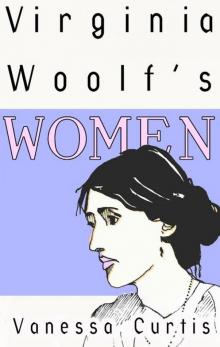 Virginia Woolf's Women
Virginia Woolf's Women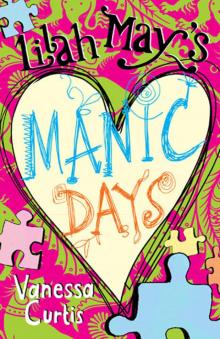 Lilah May's Manic Days
Lilah May's Manic Days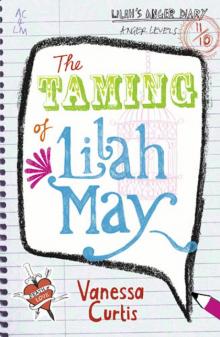 The Taming of Lilah May
The Taming of Lilah May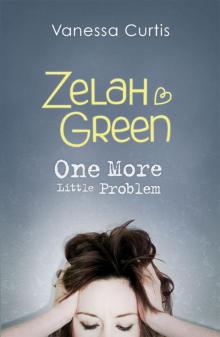 One More Little Problem
One More Little Problem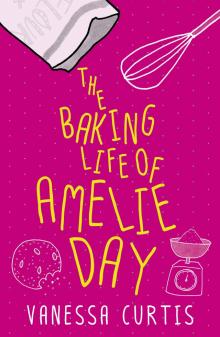 The Baking Life of Amelie Day
The Baking Life of Amelie Day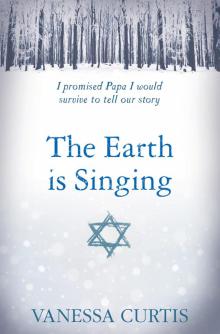 The Earth Is Singing
The Earth Is Singing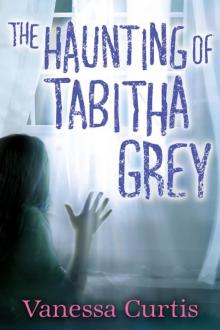 The Haunting of Tabitha Grey
The Haunting of Tabitha Grey